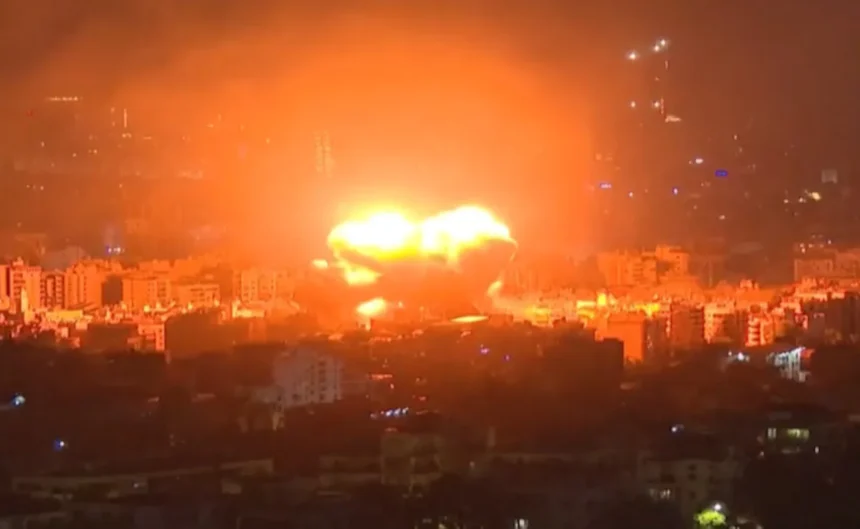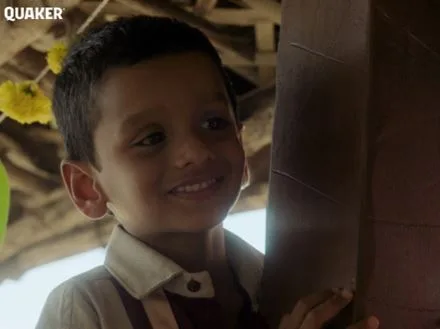Iran-Israel War Escalates : Fresh Wave of Missile Strikes as Iran-Israel Conflict Intensifies
Israel reported a new barrage of Iranian missiles early Sunday, just hours after intercepting an earlier attack and launching retaliatory strikes on Tehran. The exchange has triggered explosions across Iran, including at a major gas plant linked to the South Pars field—the world’s largest natural gas reserve.
The latest escalation marks a dangerous turn in the ongoing conflict, with both nations engaging in direct military confrontations for the third consecutive day. The situation has raised fears of a broader regional war, drawing global concern and diplomatic efforts to prevent further deterioration.
Israel Strikes Iranian Defense Ministry, Nuclear Sites
In a bold move, Israel’s military announced it had targeted the Iranian defense ministry headquarters in Tehran, along with several locations allegedly linked to Iran’s nuclear program. The Israeli Defense Forces (IDF) claimed these sites were connected to Iran’s nuclear ambitions, though both U.S. intelligence and the International Atomic Energy Agency (IAEA) have repeatedly stated that Iran had not been actively developing nuclear weapons before Israel’s initial strikes on Friday.
Meanwhile, Israel warned that another wave of Iranian missiles was inbound, prompting emergency defenses to be activated.
Casualties Mount as Cross-Border Attacks Continue
Overnight Iranian strikes on Israel killed at least eight people, including children, and triggered mass panic as air raid sirens forced millions into shelters. In central Israel, a rocket strike claimed the lives of at least four individuals—among them a 10-year-old boy—and left around 100 injured, according to Magen David Adom (MDA), Israel’s emergency response service.
Iranian state television announced a fresh missile offensive early Sunday, calling it “Operation Honest Promise 3.” The Islamic Revolutionary Guard Corps (IRGC) confirmed the strikes, stating they had targeted Israeli airbases used for refueling fighter jets, as well as energy infrastructure.
“Installations producing fuel for fighter planes and the Zionist regime’s energy supply centers were hit by a multitude of drones and missiles,” the IRGC said. The group warned that Iran’s response would grow “more fierce and more extensive” if Israeli attacks continued.
Diplomatic Efforts Collapse as Iran Cancels Nuclear Talks
Amid the escalating violence, Iran abruptly canceled scheduled nuclear negotiations in Oman, dealing a blow to U.S.-led efforts to de-escalate the crisis. Iranian Foreign Minister Abbas Araqchi condemned Israel’s airstrikes as “barbarous” and declared that talks could not proceed under current conditions.
Israeli Prime Minister Benjamin Netanyahu dismissed Iran’s threats, warning that “what Iran has seen so far is only the beginning.” He signaled that Israel’s retaliation would intensify in the coming days.
Reports of Explosions in Iran; Oil Facilities Hit
As Israel retaliated, residents in Tehran reported explosions near the Shahran oil depot, where a fire broke out following an alleged Israeli strike. The Tasnim News Agency downplayed the damage, stating that the attack on Iran’s defense ministry caused only minor structural harm.
In Jerusalem, witnesses reported seeing projectiles in the night sky, though air raid sirens remained silent. However, alarms sounded in Haifa, a key northern city, as Israeli defenses scrambled to intercept incoming threats.
Global Reactions: Pakistan Stands with Iran, U.S. Urges Restraint
Pakistan became the latest nation to weigh in on the conflict, openly supporting Iran and condemning Israel’s strikes as “a blatant provocation.” In a strongly worded statement, Pakistan’s Foreign Ministry called for an immediate ceasefire and urged the international community to intervene.
“Pakistan stands in solidarity with Iran and condemns the unjustified aggression by Israel, which threatens regional stability,” the statement read.
Former U.S. President Donald Trump also commented on the crisis, warning Iran of severe consequences if hostilities continue. However, he left room for diplomacy, suggesting that Israel’s military campaign could be halted if Iran agreed to major concessions on its nuclear program.
Risk of Wider War Grows as Tensions Spiral
With both sides refusing to back down, the conflict risks drawing in regional players, including Hezbollah in Lebanon and Yemen’s Houthi rebels, who have previously aligned with Iran. The U.S. and European nations are reportedly engaging in urgent backchannel talks to prevent further escalation, but the breakdown of nuclear negotiations has complicated diplomatic efforts.
As the world watches with growing concern, the Iran-Israel conflict shows no signs of abating. The coming hours will be critical in determining whether the situation spirals into a full-scale war or if cooler heads can prevail.
Iran-Israel War – Key Developments:
- Iran launched a new wave of missiles at Israel early Sunday, targeting military and energy sites.
- Israel struck Iran’s defense ministry and alleged nuclear facilities in Tehran.
- At least eight killed in Israeli strikes, including children; over 100 injured.
- Pakistan condemned Israel’s actions, pledging support for Iran.
- Iran canceled nuclear talks in Oman, rejecting diplomacy under fire.
- Explosions reported in Tehran after alleged Israeli strikes on oil facilities.
The situation remains fluid, with global powers scrambling to mediate before the conflict engulfs the wider Middle East.
—Iran-Israel War End of Report— Iran-Israel War Iran-Israel War Iran-Israel War Iran-Israel War Iran-Israel War
“Exciting News! Sejal News Network is now on WhatsApp Channels
Subscribe today by clicking the link and stay updated with the latest news!” Click Here
Our App : Click Here



